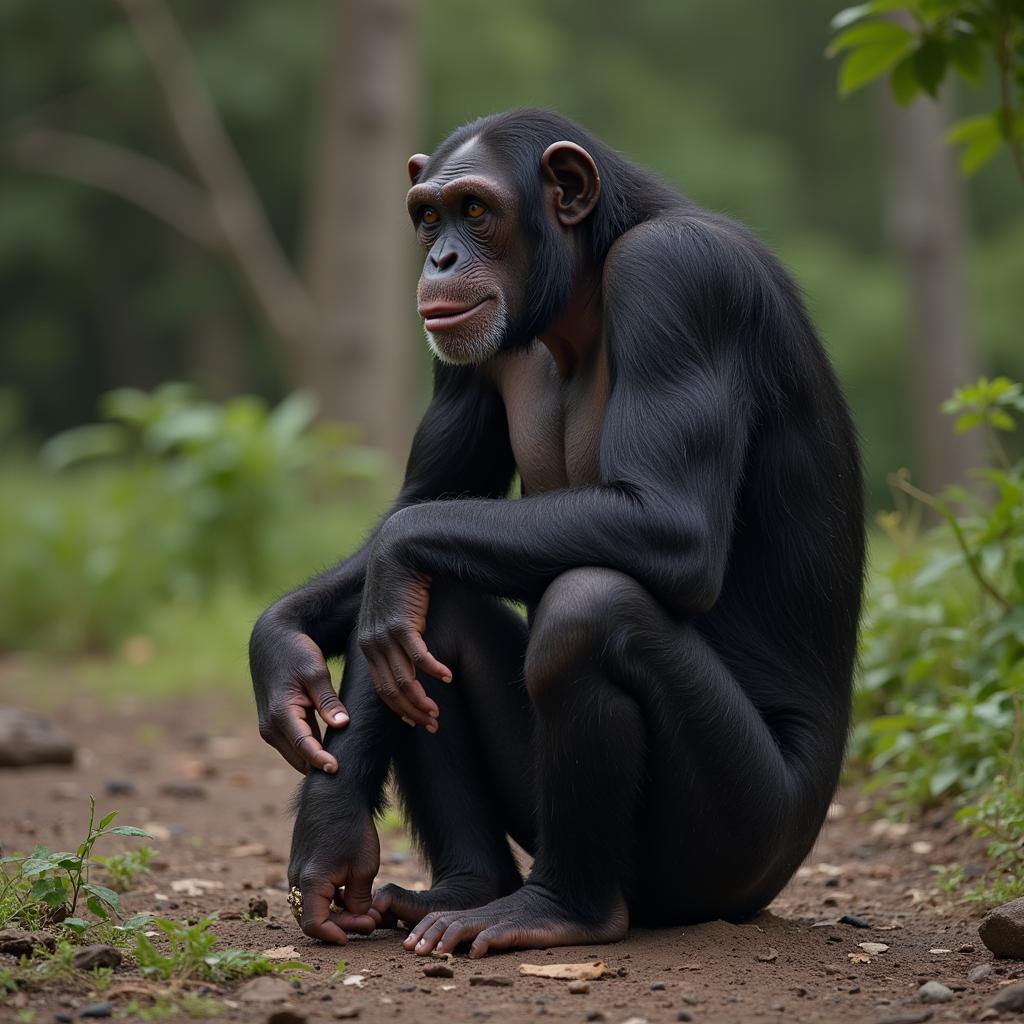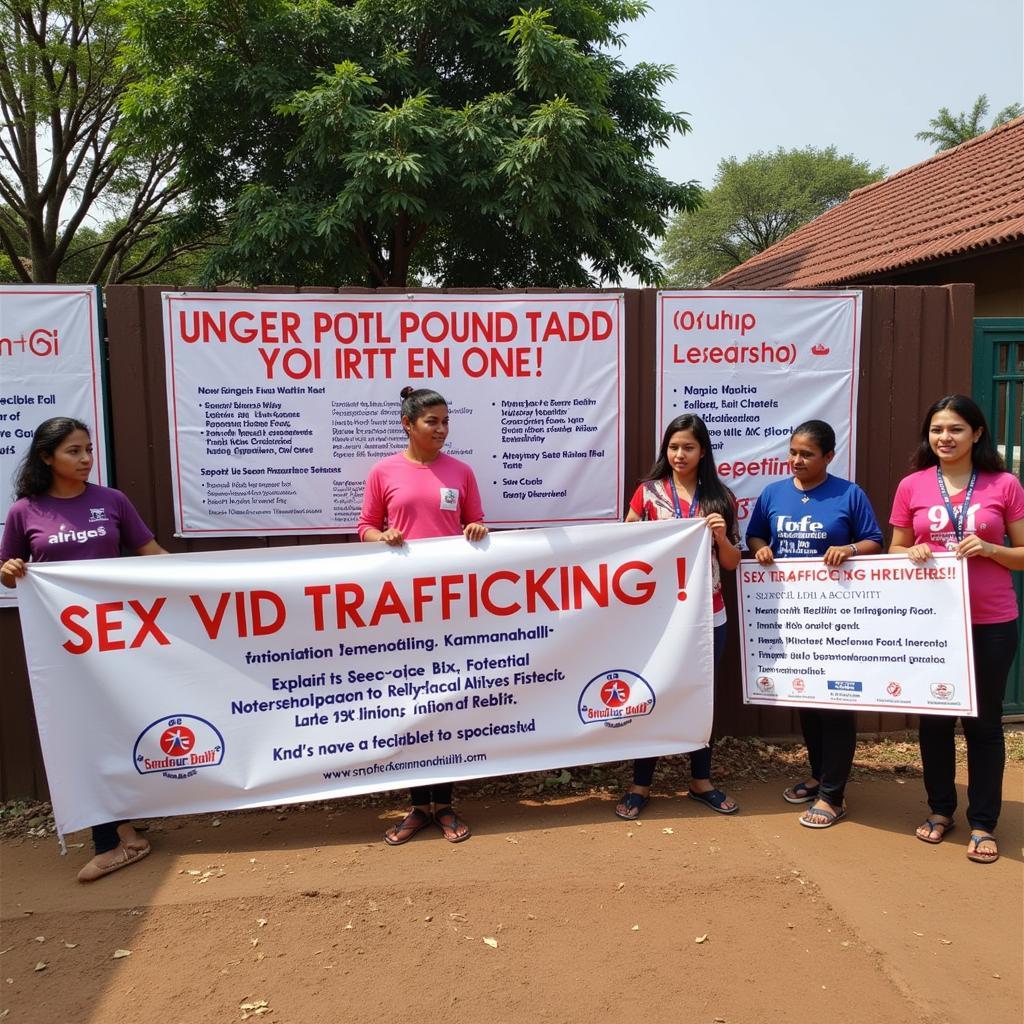The Chilling Truth of African Chimpanzee War
The brutal reality of African Chimpanzee War is a stark reminder of the complexities of the animal kingdom. These conflicts, far from being random acts of aggression, reveal a dark side to chimpanzee society, one driven by power, territory, and survival. We’ll delve into the fascinating and sometimes disturbing world of these primate conflicts, exploring the reasons behind them and the consequences they face. Just after the introduction, you might want to see a video showcasing other animals in their habitat: african jungle animals video.
Understanding the Dynamics of African Chimpanzee War
Chimpanzees, our closest living relatives, share more than just genetic similarities with humans. Their social structures, marked by complex alliances and power struggles, often mirror our own. However, this social complexity can erupt into violence, with devastating consequences. These “wars,” as they are often called, are not isolated incidents, but rather organized campaigns of aggression, typically between rival groups.
- Territorial Disputes: A primary driver of chimpanzee warfare is competition for resources. Access to food, water, and suitable nesting sites can fuel intense rivalries between groups, leading to violent clashes.
- Power Struggles within Groups: Just as human societies experience internal power struggles, so too do chimpanzee communities. Ambitious males may challenge the established hierarchy, leading to internal conflict that can spill over into intergroup warfare.
- Evolutionary Advantages: While brutal, some scientists theorize that chimpanzee warfare offers evolutionary advantages. Successful groups gain access to more resources, increasing their chances of survival and reproductive success.
The Brutal Tactics of Chimpanzee Warfare
Chimpanzee warfare is not a chaotic free-for-all. It involves strategic planning, coordinated attacks, and brutal tactics. These planned attacks often involve patrols of male chimpanzees venturing into rival territory, searching for isolated individuals. Once found, the victim is often subjected to a brutal and coordinated attack.
How Do Chimpanzees Wage War?
Chimpanzees use a combination of physical force and psychological intimidation during warfare. Biting, hitting, and kicking are common tactics, and they often use tools like sticks and stones to inflict further damage. The violence can be extreme, sometimes resulting in death.
- Patrolling and Ambushing: Male chimpanzees regularly patrol their territorial boundaries, looking for opportunities to ambush rivals. These patrols can last for hours, covering large distances.
- Coordinated Attacks: Chimpanzee attacks are often coordinated, with multiple individuals working together to overwhelm a single opponent. This coordinated aggression is a hallmark of chimpanzee warfare.
- Infanticide: In some cases, chimpanzee warfare can lead to infanticide, the killing of infants from rival groups. This horrific act is thought to be a strategy to eliminate future competitors and potentially force females into the aggressor’s group.
Dr. Jane Goodall, a renowned primatologist, has observed chimpanzee warfare firsthand. “The violence I witnessed among chimpanzees was shocking,” she notes. “It challenged our understanding of their nature and raised profound questions about the roots of human aggression.”
The Long-Term Consequences of African Chimpanzee War
The consequences of chimpanzee war extend far beyond immediate injuries and fatalities. These conflicts can have long-term impacts on group dynamics, territorial boundaries, and even the genetic makeup of populations.
What are the long-term effects on chimpanzee communities?
Chimpanzee war can lead to significant shifts in power dynamics within groups. Successful campaigns can result in territorial expansion, increased access to resources, and a rise in the status of the dominant males. Conversely, defeated groups may face loss of territory, decreased access to resources, and social instability.
- Shifts in Territory: Successful warfare can lead to significant shifts in territorial boundaries, with victorious groups expanding their range and access to resources.
- Changes in Group Dynamics: War can also lead to changes in group dynamics, with new alliances forming and old ones dissolving.
- Genetic Impacts: Over time, chimpanzee warfare can influence the genetic makeup of populations, as successful groups contribute more offspring to subsequent generations. See some of these adorable creatures here: african cuties.
 Chimpanzee After a Conflict
Chimpanzee After a Conflict
Conclusion: The Dark Mirror of Chimpanzee War
The African chimpanzee war offers a chilling glimpse into the complexities of primate behavior. While disturbing, it also provides valuable insights into the evolutionary roots of conflict and the dynamics of social power. Studying these conflicts can help us better understand not only chimpanzees, but also the darker aspects of our own nature. Understanding the dynamics of African chimpanzee war is crucial for conservation efforts. By gaining a deeper insight into these complex conflicts, we can better protect these fascinating creatures and their dwindling habitats. Do you have any questions about the food chain involving chimps? Learn more about the african food chain.
FAQ
- Why do chimpanzees go to war? Primarily for territory and resources, but also for power within the group.
- How long do chimpanzee wars last? They can range from brief skirmishes to prolonged campaigns lasting months or even years.
- Are all chimpanzee groups warlike? No, the frequency and intensity of warfare vary between groups and across different habitats.
- Do female chimpanzees participate in war? While males are the primary combatants, females sometimes participate in attacks on rival groups, particularly if their own offspring are threatened.
- Is chimpanzee warfare similar to human warfare? There are some similarities in terms of strategic planning and coordinated attacks, but there are also significant differences.
For more information on baby animals in the African jungle, you can check out our collection of african jungle babies.
When you need support, please contact us by Phone: +255768904061, Email: kaka.mag@gmail.com Or visit us at: Mbarali DC Mawindi, Kangaga, Tanzania. We have a 24/7 customer service team. We also have a page dedicated to pictures related to this topic: african jungle fucking pics.

